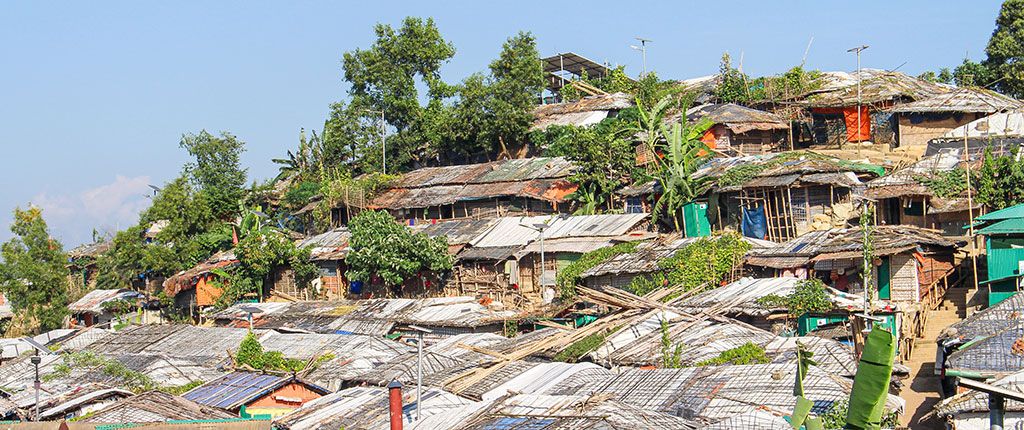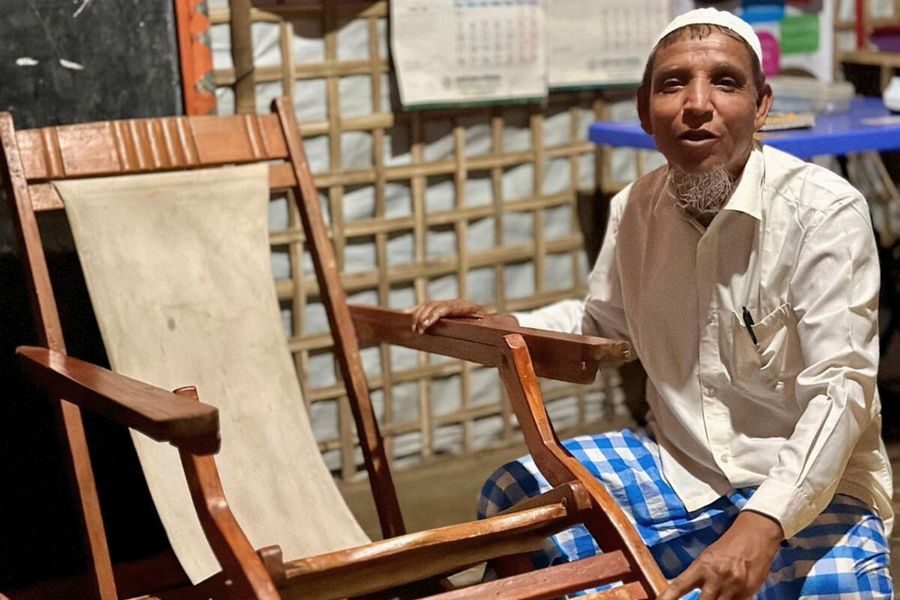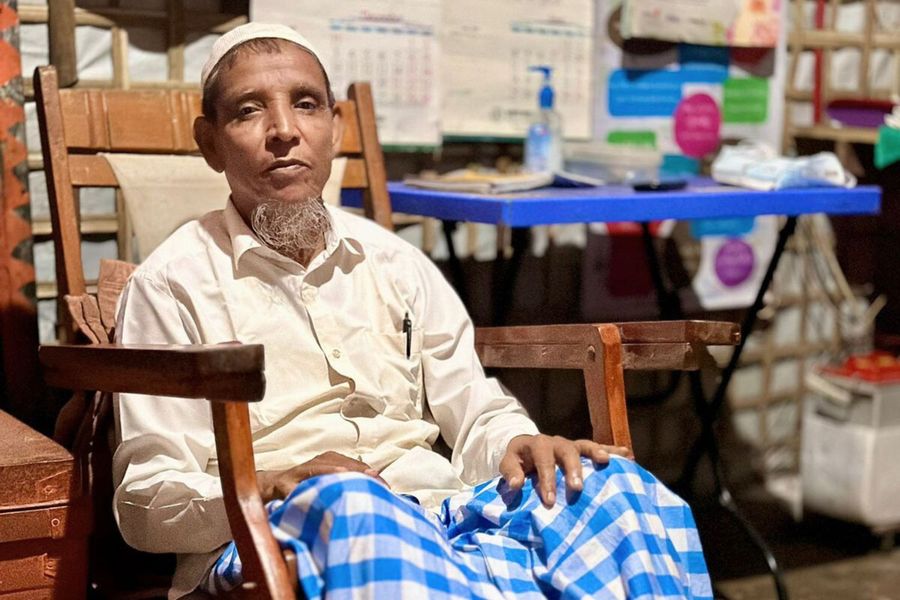
The chair that crossed borders - Mohammad Akter’s priceless possession with a vital purpose

"Our ancestral land had abundant natural resources, freshwater sources, and vast open land," 65-year-old teacher Mohammad Akter (name changed) looks back on his old life in Myanmar with melancholy. In his home in Rakhine State, he had property and a lot of agricultural land. He and his family therefore never faced food shortages. In fact, they did not lack any basic necessities that they could earn for themselves. However, as Rohingyas, they were confronted with harsh restrictions and discrimination. They were denied formal healthcare. In 2017, the violence against the Rohingya escalated. When Mohammad Akter witnessed a horrific attack on a neighboring village, the only option left for him and his family was to flee. Filled with fear, they crossed mountains and rivers together with other inhabitants of their village and trekked through the jungle until they finally found protection and safety in Bangladesh.
Mohammad Akter's life has turned 180 degrees after fleeing
Since then, Mohammad Akter has been living here with his three daughters, his two sons and their families in the refugee camp in Cox's Bazar. It is considered the largest refugee camp in the world. "Here in the refugee camp, we live in a congested area surrounded by filth, unsafe water sources, and inadequate latrine facilities," he says, describing the situation in the camp. Mohammad Akter and his family have access to free healthcare at one of the three health posts that are run directly in the camp by our local partner GK - supported by Malteser International and thanks to the funding from the German Federal Foreign Office. In many ways, Mohammad Akter's life has turned 180 degrees after fleeing his home.
"This chair is priceless to me"

But there is one object that connects his new and old life: a wooden easy chair. "My neighbors helped me carry this chair on the long journey from Myanmar to Bangladesh," he explains. "This chair is priceless to me because it reminds me of how I used to relax on my farmland after a long day's work before I left home. I really love this chair." In addition to its sentimental value, the chair also has a practical purpose. Neighbors often borrowed it to take their sick relatives to the local doctors as there were no ambulances in Rakhine State. And the chair is still useful today. It is also used as a stretcher in the refugee camp to carry patients, pregnant women and elderly people to our health post. "I am happy that I can help people around me with my chair," says Mohammad Akter.
The wooden armchair and its significance for Mohammad Akter and his community impressively demonstrates that there are things that exceed their possibly modest monetary value. They are valuable and priceless.
Your donation works in a similar way. It may have a certain monetary value, but has the chance to become priceless.
(November 2024)








